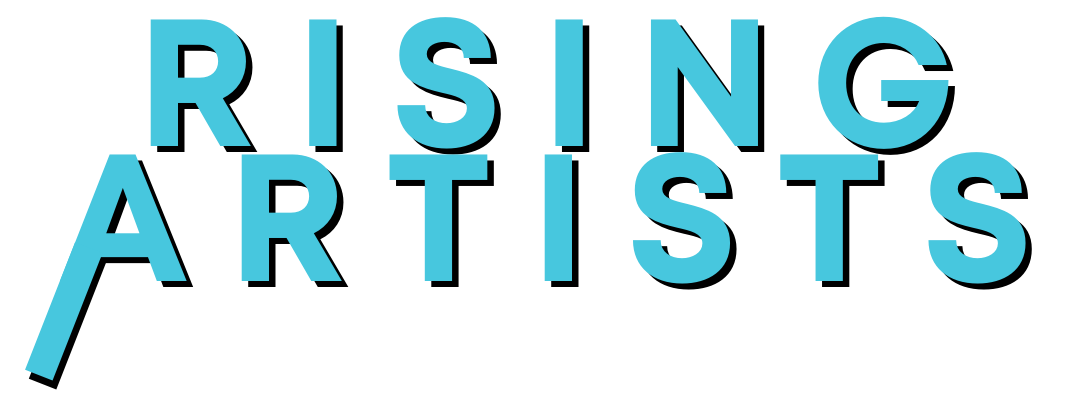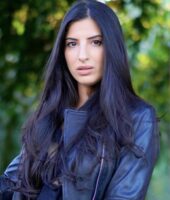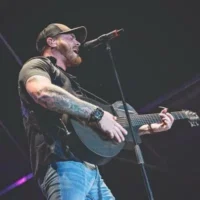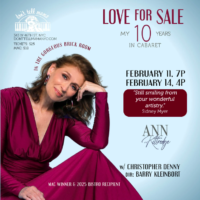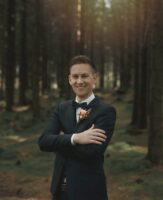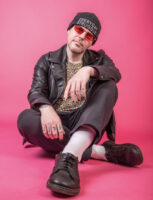Q: This song was inspired by a longing for physical touch, something that was off-limits during the pandemic. How did the actual song come together? Which parts were the easiest and which were the most difficult?
Howe: It was about halfway into the pandemic when a friend told me she went on a walk, and a dog off its leash ran up to her and sort of jumped into her arms and gave her a kiss. She joked that was the most physical connection she’d had in months, and it made me think how special simple physical connection is. I think all of us thought about this during that time- and gained a new appreciation for a snuggle from a dog, or holding somebody’s hand. Thinking about simple touch took me back to my childhood, and I thought about my first experience with a kiss and also about the nursery rhyme that talks about two lovers sitting in a tree. That nursery rhyme usually goes: “ ____ and _____ sitting in a tree, k I s s I n g, first comes love, then comes marriage, then comes baby in a baby carriage.” But I wasn’t craving anything that comes after, I was just craving the first part- that base connection. The song is lyrically simple so I finished the words quickly, and because I was excited about it I immediately opened up a Logic file to make it a demo. I added some dark and broody guitars and synths and a heartbeat-esque kick that I felt translated my emotion and intention well. I then partnered with Hero at Hero Music Productions in Sacramento, California. He added some really cool movement to help me finish the production. Compared to some other projects of mine, this song came together fairly easily. If there was a difficult part, I would say it was recording my vocals in a studio for the first time. When I’m crafting and trying out different things in my spare bedroom, my brain doesn’t throw any obstacles up. But when I go to do the final recording it likes to think a lot, which is why I usually record by myself in my bedroom. This was a good experience for me though, because I can’t push past fears and insecurities if I don’t challenge them.
Q: How did you come to music? What drives you to create?
Howe: I’ve always loved words. I devoured books growing up, and thought I wanted to be a lawyer. While in Cambodia, when things got hard, I would lose myself in other’s music, and it was healing. It could transport me away from what I was feeling, or help me connect to emotions that I needed to process. I also always enjoyed writing growing up, but it was usually creative short stories or school projects. In 2017 and 2018, I started writing poems as a way to process all of my emotions. I found it so cathartic, and I thought in the way that others helped me, I could also share what I felt and maybe help a stranger emote. After I got a ukulele, I started turning the poems into songs. I felt so passionate about what I was creating, and also so insecure. I didn’t think I could sing, and I felt so far away from my dream of writing and sharing songs. It was my own misbelief that I was having to catch up to people who had known that this is what they wanted from a much younger age, but I see now my timing has been perfect for me. For the past couple of years I worked on myself: figuring out how to produce, learning how to play more instruments, and how to use the instrument inside of me. All the time doing what I love most, writing. It comes the most naturally to me, and so I am driven to create out of my own passion and also my desire to use words to empower people, and to help them emote. In the way so many others have helped me.
Q: Before you were in music, you worked for an anti-trafficking non-profit. How do you think your previous work impacts the music you create or the message you want to send?
Howe: It impacts it deeply in that my drive to share what I create stems from me wanting to empower women and question why femininity is often associated with weakness. Growing up, I wanted to be an international human rights attorney, and as I got older I saw that wasn’t the right path for me. But my desire to use words to fight for justice and empower others hasn’t changed. Not every piece I create speaks to feminism directly, but it is always in the back of my mind when I’m crafting a song or narrative. That is why I chose the name Howe, to honor the suffragette Julia Ward Howe and give gratitude for all the people that championed empowered femininity before me.
Q: One of the ways you define yourself as an artist is “Poems and piano keys.” Are there any specific poems that inspire your work?
Howe: There are so many poets I enjoy, but right now I’m soaking up Rupi Kaur’s strong feminism and I find myself going back to ‘My Lost Youth’ by Henry Wadsworth Longfellow. The poem ends with, “My heart goes back to wander there, And among the dreams of the days that were, I find my lost youth again. And the strange and beautiful song, The groves are repeating it still: “A boys will is the wind’s will, And the thoughts of youth are long, long thoughts”. It is particularly the last line that sticks with me: “And the thoughts of youth are long, long thoughts.”

Q: Can you expand on the story told in the first few lines of the song? It seems like a sweet and innocent moment.
Howe: I have a memory from preschool, where I was sitting on a swing and I saw three children playing a game during recess in which one would be in the middle, arms out, and the other two would be on each side. They would kiss the middle person’s hands and then, all connected, they would run from one side to another. The children didn’t intentionally exclude me, it just happened to be a game they were playing, and I remember wanting to be involved in it. But the bell rang before I ever went over to them, so we all went inside to have some circle time. Apparently my three or four- year-old brain thought this was the perfect time to share that I wanted to play that game, so I leapt across the circle at a boy who was one of the participants. I wanted to give a kiss, or get a kiss, like I saw in the game. Needless to say, the teacher wasn’t too pleased that I did that. The story speaks to sweetness and innocence, and a desire to connect and play, in a way that children have a beautiful and pure way of doing. It also speaks to loneliness, and that desire we have deep down to connect and be involved.
Q: What are your plans for your music?
Howe: Right now my plans reach to the end of this year. Between now and then I am going to release a song every month. I have so many ideas and stories I am excited to share, and I am hopeful that with each release I can make more connections. To those who make music, appreciate music, and those who feel understood through my words.
Interviewed by Kat Rendon
